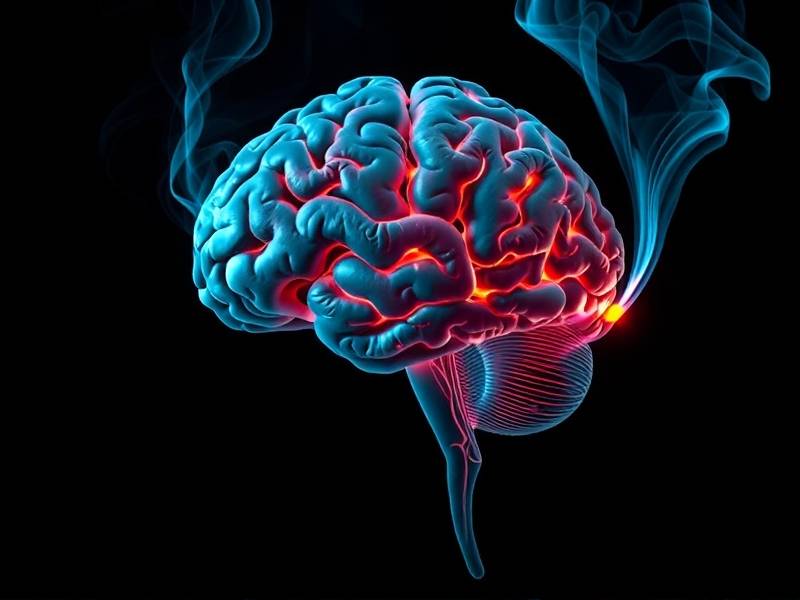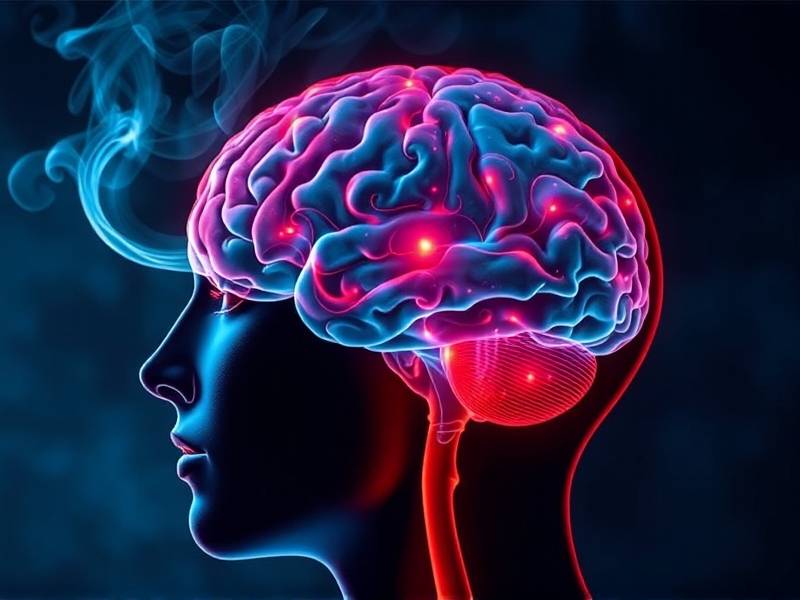What Really Goes On in Your Brain When You Quit Smoking?
Unveiling the Intricacies of Brain Chemistry During Smoking Cessation
Introduction: The journey to quit smoking is not just a physical endeavor; it's a mental and emotional challenge as well. Many smokers wonder what exactly happens in their brains when they decide to quit. This article delves into the fascinating world of neuroscience, exploring the changes that occur in the brain during smoking cessation.
The Reward System and Nicotine Withdrawal

When you smoke, nicotine rapidly binds to receptors in your brain, triggering a release of dopamine—a neurotransmitter associated with pleasure and reward. This creates a temporary sense of well-being, reinforcing the habit. However, as you quit smoking, this reward system takes a hit.
Nicotine withdrawal can lead to cravings, irritability, and anxiety. Your brain may seek out other activities or substances that can mimic the dopamine rush it once received from nicotine. Understanding this process can help you develop coping strategies for managing withdrawal symptoms.
Neuroplasticity: The Brain's Ability to Change
One of the most remarkable aspects of the human brain is its ability to change and adapt throughout life—this is known as neuroplasticity. When you quit smoking, your brain begins to rewire itself, forming new neural connections that reduce cravings and strengthen your resolve.
Research suggests that cognitive behavioral therapy (CBT) can enhance neuroplasticity by teaching individuals new ways to think about smoking and stress management techniques. By engaging in CBT or similar programs, you can accelerate the process of forming new neural pathways that support your smoke-free lifestyle.
The Role of Emotions in Smoking Cessation
Emotions play a significant role in smoking cessation. Stress, anxiety, and boredom often trigger cravings for nicotine. Understanding how emotions influence your behavior can help you develop healthier coping mechanisms.
Mindfulness practices such as meditation and deep breathing exercises can help regulate emotions and reduce stress levels. By learning to manage your emotions effectively, you'll be better equipped to resist the urge to smoke when faced with challenging situations.
The Importance of Social Support

Quitting smoking is easier when you have a strong support system in place. Friends, family members, or support groups can provide encouragement and hold you accountable during your journey.
Research shows that individuals who receive social support are more likely to succeed in quitting smoking than those who go it alone. Consider joining a local or online support group or seeking guidance from a healthcare professional specializing in addiction treatment.
Conclusion:
Quitting smoking involves more than just breaking a physical habit; it's an opportunity for personal growth and transformation at the neurological level. By understanding how quitting affects your brain chemistry and employing effective coping strategies, you can overcome nicotine addiction and achieve lasting freedom from tobacco dependence. Remember that change takes time; be patient with yourself as you navigate this transformative journey towards better health and well-being.
